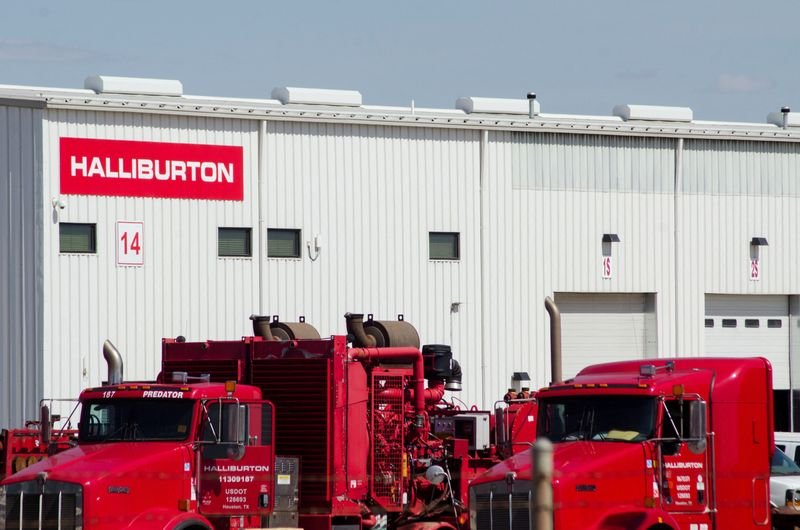By Arunima Kumar and Arathy Somasekhar
HOUSTON (Reuters) -Halliburton on Tuesday warned of a second-quarter earnings impact from tariffs and lower oilfield activity in North America as producers evaluate drilling and completions at weak oil prices, sending shares of the oilfield service producer down about 6%.
Halliburton is the first of the Big Three U.S. oilfield services providers and among the first large oil company to report earnings as U.S. crude prices hover under $64 a barrel. Many companies say they cannot drill profitably if oil prices fall under $65 a barrel, denting demand for equipment and services provided by companies like Halliburton.
“Many of our customers are in the midst of evaluating their activity scenarios and plans for 2025 activity reductions could mean higher than normal white space for committed fleets and in some cases, the retirement or export of fleets to international markets,” Halliburton Chief Executive Jeff Miller said about expectations in North American markets. White spaces refer to gaps in the calendar when the company does not have work lined up for its equipment.
Halliburton shares were down about 6% at $20.62 a share, after it forecast a 2-cents to 3-cents per share impact in the second quarter from trade tensions. Second-quarter earnings were estimated to be 63 cents per share, according to LSEG data.
Shares had fallen as much as 10% during the session, and were down 24% year-to-date. Rival SLB’s shares were down only 11% this year.
The oilfield service sector worries President Donald Trump’s tariffs on imported steel and parts will disrupt supply chains and drive up equipment costs, such as drilling rigs and well casings.
The company also took a $107 million severance cost in the first quarter. Halliburton, which also took a $63 million severance charge in the third quarter of 2024, did not immediately reply to a request for details on the severance charge.
Halliburton said first-quarter North America revenue was $2.2 billion, down 12% from a year earlier.
International revenue eased 2% primarily due to lower drilling and project management activity in Mexico. It forecast year-over-year international revenue to be flat to slightly down.
Mexico is proposing new contract models for the oil sector, while struggling to pay off billions of dollars of accumulated debt to oil service companies. In the meantime, state company Pemex’ oil output has continued falling this year to some 1.62 million bpd, compared to 1.76 million bpd last year.
“I think they have a plan, but I also think it will be tough for a while… I don’t see immediate recovery in Mexico,” Miller said.

